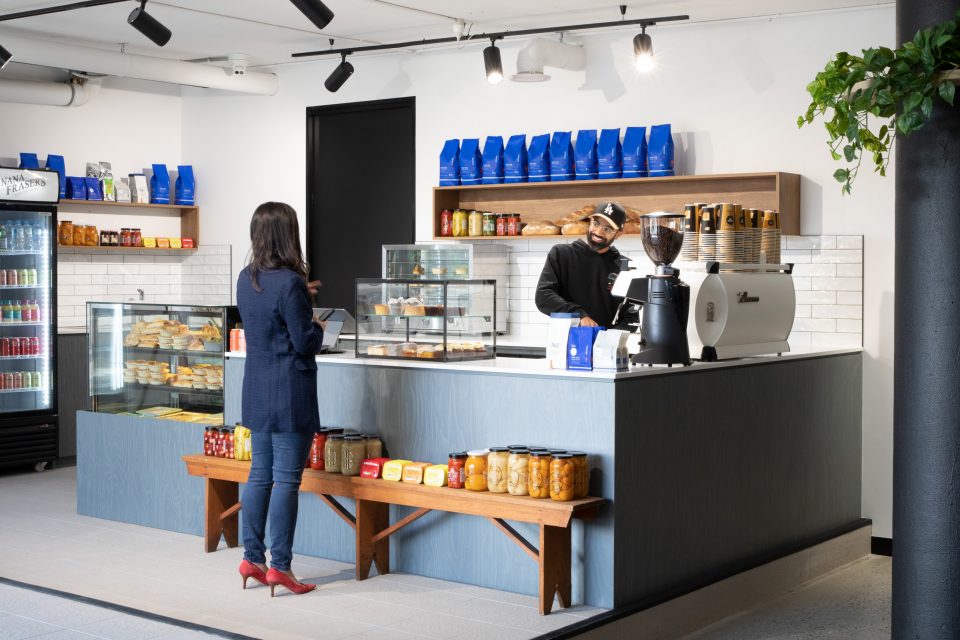The Nomadic Dream Of The Coworking Space

A ‘nomad’ is described by Oxford Dictionary as “a person who does not stay long in the same place; a wanderer.”
A digital nomad or freelancer, then, is someone who packs up shop at home, deciding instead to conduct work from abroad.
So, why are coworking spaces the perfect place for a digital nomad or freelancer?
Digital nomadism is on the rise. Arguably provoked by the COVID19 pandemic, companies are increasingly choosing to go remote. By consequence, there is little need for workers to remain within the city where they once went into the office and worked. As presented in a 2015 study by Pieter Levels, presented at DNX Global, job security is on a downwards trend. It is not as easy as it once was to be hired as a graduate, and thus people are constructing their own, alternate routes of self-employment. Also, Levels addresses the technological advancements of the future, engendering attraction for the digital nomad lifestyle.
“This is the internet speed. Right now, it’s about 100 megabits. It varies around the world, but it’s going to be 100 gigabits by 2035 (Alcatel-Lucent, exhibit 9.21). 100 gigabit means about 12.5 gigabytes a second (Google, 2015).”
– Pieter Levels, as in levels.io
Levels even alludes to the affordability and speed of flights, incentivising travel. Stuart McDonald is a digital nomad who runs Travel Fish, a travel-planning website for Southeast Asia. McDonald tells The Next Web of his travels enabled through this nomadic workstyle, such as how we learnt to dive in the Togean Islands in Sulawesi. The allure of exploration may be said to greatly increase the abundance of freelancers in the future, anticipated (according to Statista) to be the majority of the U.S. workforce at 50.9% in 2027.

The synergy between coworking spaces and the nomadic lifestyle is undeniable.
Coworking spaces such as WeWork are global organisations, with branches scattered over the globe and continuing to proliferate. As stated by Jaga, such a coworking space is a “great way to retain a sense of stability and routine while travelling to another city or country.” It is the belief of Di Minardi in Slight North that the company possessing offices in all locations (not just the main cities) is the most successful, believing that the ability to get “the same quality and amenities no matter where in the world” would incentivise a lifestyle of travel.
This notion of enhanced routine extends to the work hours of digital nomads.
DailyRemote findings highlight overworking as the biggest challenge for remote workers (with a 46.3% response rate). There is no standard for digital nomads. Some people wake up early to start their work, whereas others start their work at what would be another’s bedtime. Effectively, coworking spaces draw a line in the sand between home life and work life. Physical separation from the home reduces the likelihood of work infringing upon one’s personal life.
This separation of home/work life may be said to be important. As stressed by Di Minardi, Airbnb’s (the typical locale of digital nomads), are not guaranteed to have fast internet or suitable amenities. Coworking spaces void this concern, affording ergonomic solutions with spacious and comfortable workstations. Moreover, they provide a social aspect.
Freelancers historically partake in meetups for socialisation and networking.
However, as suggested in Slight North, the frequency and participants of these are largely inconsistent. At a coworking space, there is this consistency. The isolation of solo travel instils feelings of loneliness, and thus interaction with fellow coworking members quenches this thirst for human connection.
Who knows! As Di Minardi advises, you may even get the best travel tips from the person sitting right beside you…
WHAT ARE YOU WAITING FOR?
Join the family & recharge your innovative mind, please call (03) 7064 9669 or email [email protected]




